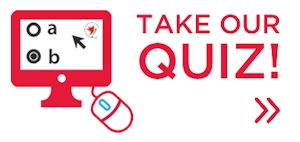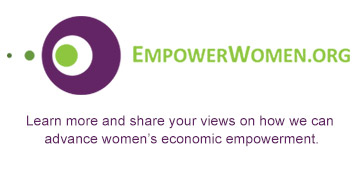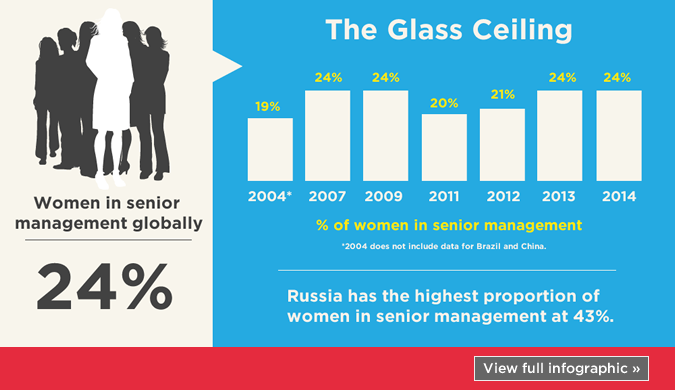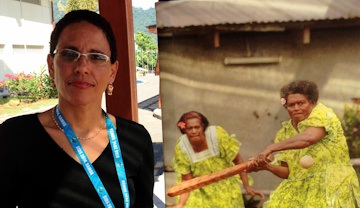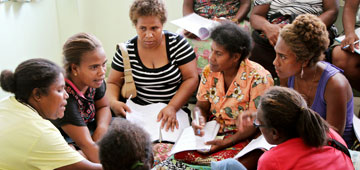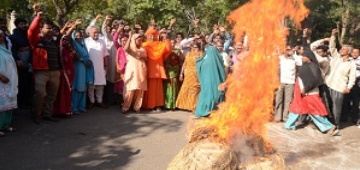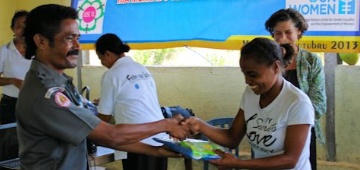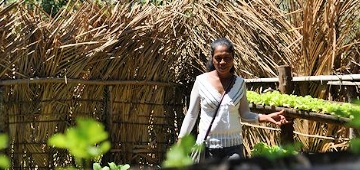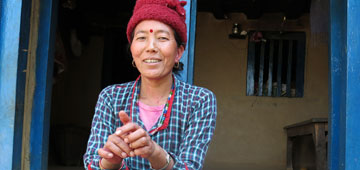Women and the economy
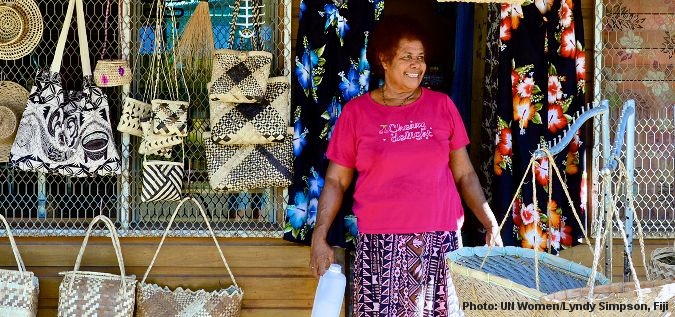
Many doors have opened. Women today are farmers, factory workers, CEOs of companies, scientists, engineers, doctors, and hold many other jobs that may have been unthinkable in the past. Women have vast and positive impacts on the economy, in business, agriculture, and industry, and as domestic workers, market vendors, migrant workers, and through their unpaid care work. Despite some progress, obstacles to women’s full and equal participation, including the lack of an enabling environment, persist. The Beijing Declaration and Platform for Action, adopted by Member States in 1995, highlighted women and the economy as one of the 12 critical areas of concern. The 189 governments that signed the agreement committed to undertaking concrete action to address specific objectives towards enhancing women’s positions in the economy.
In spite of strong evidence that realization of women’s economic rights, especially in terms of work and income, advances economies and sustainable development, women still remain disproportionately affected by poverty, lack of land and inheritance rights, and discrimination and exploitation in the labour market. Early and child marriages, as well as lack of access to education has negative impacts on women’s lives and well-being, as well as their human potential and economic contributions. Though progress has been made on ensuring primary school education for all girls and boys, access to secondary and higher-level education remains a challenge in some countries for girls, limiting potential choices in employment. The pandemic of violence against women also has a profound impact on families and communities, hampering development, and costing countries billions of dollars annually in health care costs and lost productivity.
The forward-looking Beijing Declaration and Platform for Action agreed to make substantial changes in women’s lives in all of these areas, and also undertake improvements in eliminating occupational segregation, especially by promoting the equal participation of women in highly skilled jobs, STEM industries, and senior management. It also committed to promoting the balance of work and domestic responsibilities for women and men, including improving access to quality, affordable childcare, and stressing the need to ensure that pregnant women, women on maternity leave and women re-entering the labour market after childbearing do not face discrimination. Renewing and reinvigorating these commitments will promote greater gender equality and enhance the well-being of women and men, households and communities in both the global North and South.
Fast facts
ARTicles
Turning good intentions into action
As we enter the final 12 months of global stocktaking and agenda setting for the post-2015 development agenda, we have the responsibility to define with sufficient clarity the world that we want and to do more than describe but also to prescribe and articulate how that world will be more assuredly realized.
Editor's picks
Markets set to improve, with Pacific women in the lead
Where: Fiji, Solomon Islands and Vanuatu
Organization: UN Women
UN Women is working with women market vendors in Fiji, Solomon Islands and Vanuatu to improve their working conditions, earning power and leadership skills.
Women champion their liberation from manual scavenging in India
Where: India
Organization: UN Women
Manual scavengers represent arguably one of the most inhumane ‘jobs’ that a person can have. Ms. Chotti Bai from Chittorgarh district of Rajasthan used to be one of the hundreds of thousands of manual scavengers in India. Their daily task it is to remove human waste from unsanitary and ‘dry toilets’ (without flushing system).
The fight for women's rights in the workplace – an ILO history
Where: Global
Organization: ILO
Take a look back at the ILO's contribution towards gender equality in the workplace. This slideshow begins with the Maternity Protection Convention (No. 3) in 1919, one of the first acts of the inaugural International Labour Conference (ILC), all the way up to more recent Conventions to provide provisions for equal treatment in the workplace.
More money, more decisions to be made
Where: Timor-Leste
Organization: UN Women
“We grow vegetables and make organic pesticides with natural materials we can find close to our village. The farmers that are using the organic pesticides say that they can see a difference in their crop growth after just one season. The grant that we are receiving today will help us make more pesticides and expand our garden so that we can eventually transport our goods to the main market to sell,” said Rosalina Moniz, survivor of domestic violence and leader of the Protection Holsa group.
Sowing seeds, reaping income and independence, in Timor-Leste
Where: Timor-Leste
Organization: UN Women
When you are going through something in your marriage, you think about the kids and how you are going to feed the kids if you don’t have him anymore,” says Rosalina Moniz, an outspoken woman in her 50s from western Timor-Leste. She suffered years of domestic violence, experienced frequent feelings of hopelessness, and felt as if there was no way out..
Women dairy farmers reinvest income to support their families
Where: Afghanistan
Organization: FAO
In Afghanistan, an FAO project has raised the capacity of thousands of smallholder dairy farmers, especially women, in producing milk and establishing viable and functional dairy enterprises. The project has improved family nutrition and food security, and also contributed to income and employment generation.
Smart cards save time and money for Nepal's women farmers
Where: Nepal
Organization: WFP
An electronic smartcard supplied by WFP is changing the lives of women farmers in rural Nepal by helping them feed their families and teaching numeracy and banking skills.
Resources
- UN Women's Fund for Gender Equality (UN Women, 2011-2014)
- What Migrants Bring (IOM, 2013)
- Knowledge Gateway for Women's Economic Empowerment (UN Women, 2013)
- Women in Science (UNESCO, 2014)
- Gender on the Move: Working on the migration-development nexus from a gender perspective (UN Women Training Centre Manual, 2013)
- Girls in ICT (ITU, 2014)
- Women's Empowerment Principles (United Nations Global Compact and UN Women, 2014)
- Video (in Spanish only): Demand Equality (ECLAC, 2014)
